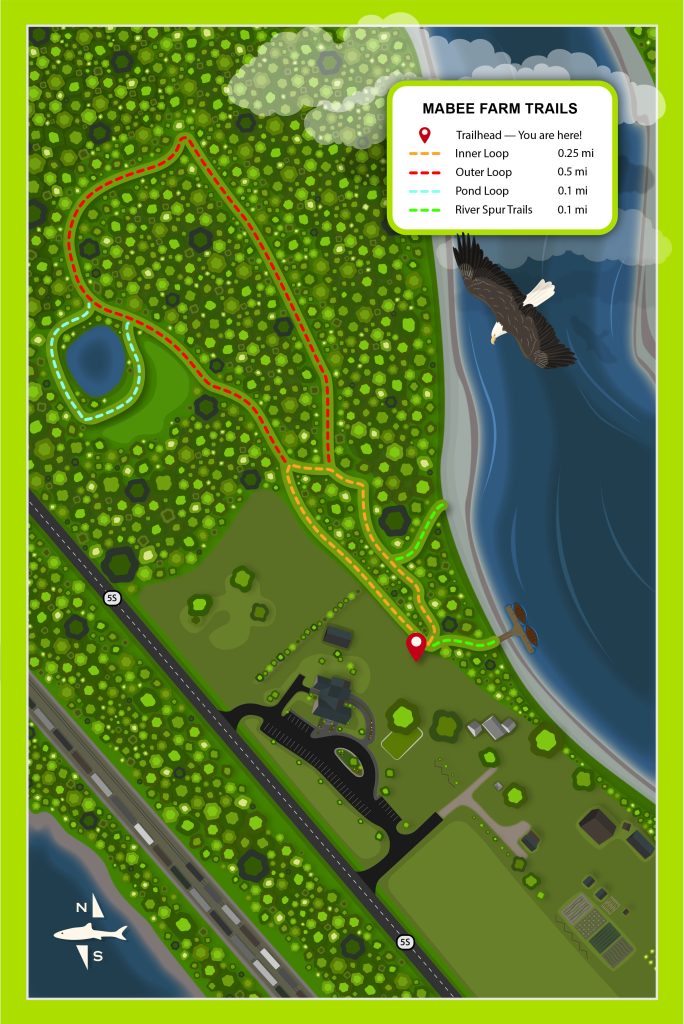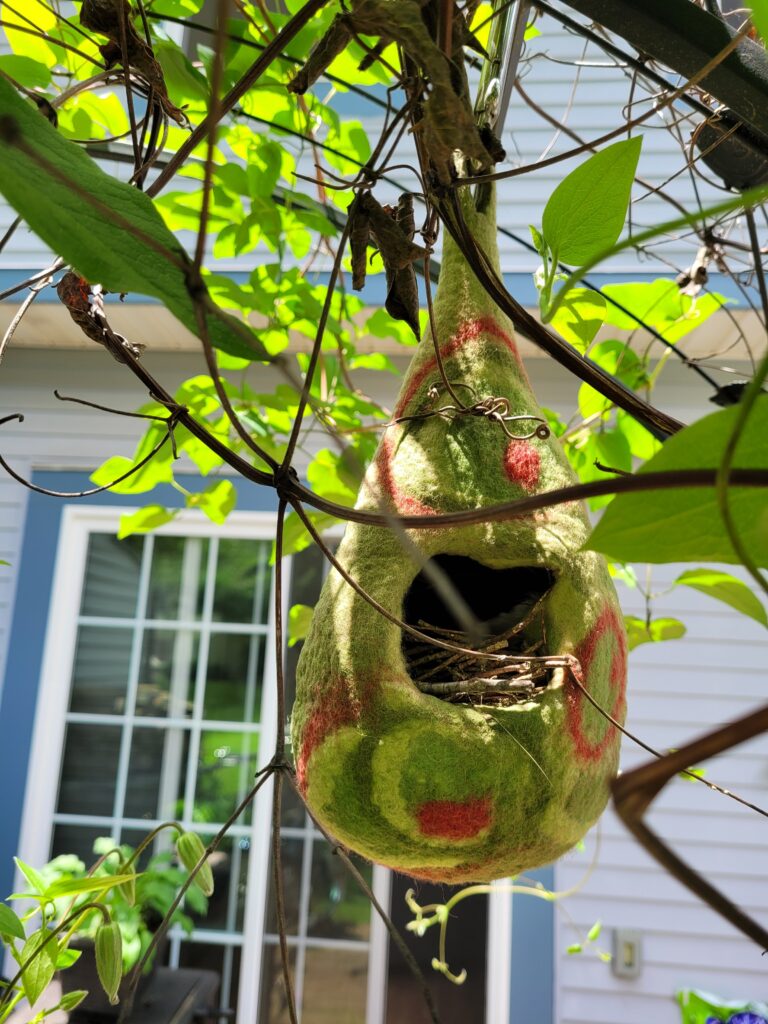September-April: Public tours on Fridays & Saturdays at 11:00am, 1:30pm, & 3:00pm.
May-June: Public tours on Fridays at 1:30pm & 3pm, public tours on Saturdays at 11:00am, 1:30pm, & 3:00pm.
July-August: Public tours on Wednesdays, Thursdays, Fridays, & Saturdays at 11:00am, 1:30pm, & 3:00pm.
We are closed on all major holidays
About Mabee Farm
The oldest farm in the Mohawk Valley (1705), Mabee Farm Historic Site offers visitors today vibrant educational and recreational opportunities. With its deep history and riverside beauty, it’s the perfect place to explore the heritage of rural Schenectady County and the Mohawk Valley.
Mabee Farm is home to three 18th century houses, an 18th century Dutch Barn, a number of wooden outbuildings, and our modern Franchere Education Center. Walk across weathered pine floors in the home of 18th century settlers. Say hello to our resident farm animals. Ogle the hand-pegged Dutch Barn (1760s) or just meander through our orchards, gardens, and forest trails. Tied to the dock float our reproduction 18th century bateaux, giving visitors an idea of how goods were shipped on the Mohawk River when Schenectady was America’s frontier.
Inside the Franchere Education Center, we host year-round exhibitions, lecture series, workshops, and school programs, conference space, plus extensive historical collections. A virtual map of Mabee Farm is available here.
Mabee Farm History
Jan Mabee and Anna Boorsboom were the first Europeans to permanently settle on this farm when they built their homestead in 1705. For them, this was the woestyne, a wilderness covered in deep brush and surrounded by forests filled with wild animals. Anna and Jan, along with eight of their children, built their home here. And for the next three centuries their descendants continued to develop and farm this land.
The Mabee family is not famous, and you won’t find them in any textbooks. Yet, their story is a deeply American story. The transformation of Mabee Farm from a colonial homestead into a prosperous farm, and now a dynamic historic site, is the culmination of generations of hard work, perseverance, daring, and change.
Though the Mabee family created a farm that thrived for three centuries, their success was not created alone. For 120 years, the survival and success of the Mabee family depended on enslaved African Americans, whose forced labor was used to develop and expand an agricultural enterprise. Through the 1700s and 1800s, the Mabee family owned at least 14 enslaved African Americans, who supplemented the work force of family members and hired hands. Unlike the Mabee family lineage, which is well documented and researched, the documentary record gives us little information about the enslaved people of Mabee Farm. Of these 14 men, women, and children, only 8 names are known: Anthony, Bate, Cato, Deen, Gin, Jack, Sam and Sip.
SCHS is actively working to uncover more information about the enslaved people at Mabee Farm, so that their stories may be justly told. The 2024 documentary, “Ghosts of Mabee Farm: An Account of Slavery in New York State” provides an introduction to the topic.
Preservation of the 18th Century Buildings
Thanks to your generosity over the last year, we’ve stabilized both the Brick House and the Inn at Mabee Farm. On top of that, all masonry work on both of these buildings has been completed! These two structures, which hold so much history, are standing tall today because of folks like you.
But we’re not quite done yet. The 1705 Stone House needs $130,000 in stabilization work and masonry and carpentry repairs. On top of that, we need to restore the building’s many 18th century windows. If you’d like to help, please click here or press DONATE below.
Following a 2023 building conditions survey, engineers indicated that our three 18th century buildings need significant restoration and preservation work, including stabilization, masonry work, carpentry work, and more. This vital work, along with other necessary projects, will cost over $500,000. Some of it has already been completed, but more is ahead.
SCHS staff reached out to Lt. Governor Antonio Delgado, himself a native of Schenectady to bring this project to his attention. The Lt. Governor visited Mabee Farm Historic Site on October 30, and toured the Brick House slave dwelling. He was supportive of the project and thanked SCHS staff for “keeping this history alive for generations of New Yorkers to enjoy.”
In a letter to members, SCHS Executive Director Mary Zawacki further explained, “So that future generations can learn these important stories, it is vitally important to preserve these buildings. The Brick House – particularly its barren basement – is a tangible connection to the lives of enslaved Schenectadians. It is our duty as stewards of history to safeguard this structure so that future generations will be able to delve into the complexities of our shared past.”
Visitor Information
Summer Hours: In July and August, we are open Wednesday-Saturday with tours at 11am, 1:30pm, and 3pm.
Regular Hours: We are open Friday and Saturday with tours at 11am, 1:30pm, and 3pm. We are also open by appointment by emailing office@schenectadyhistorical.org or calling 518-374-0263 x5 at least two days in advance.
Admission: $10; children, students (with ID), and SCHS members free
Museums for All: SCHS is part of Museums for All, a signature access program of the Institute of Museum and Library Services (IMLS), that encourages people of all backgrounds to visit museums regularly and build lifelong museum-going habits. The program supports those receiving food assistance (SNAP) benefits visiting SCHS for a minimal fee of $0 per person, up to four people, with the presentation of a SNAP Electronic Benefits Transfer (EBT) card. Museums for All is part of SCHS’ broad commitment to seek, include, and welcome all audiences.
Group Visits: Please book in advance by emailing Michael Diana at educator@schenectadyhistorical.org.
Accessibility: The grounds, Franchere Education Center, and all historic buildings with the exception of the Brick House are wheelchair accessible.
Nature Trails: Our nature trails loop through one mile of forest, and feature abundant wildlife, diverse plants, a pond, and access to a small beach on the Mohawk River.





